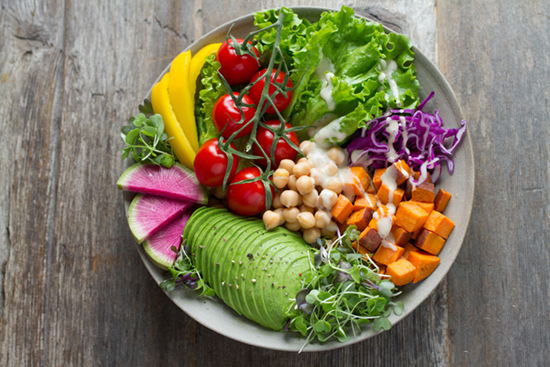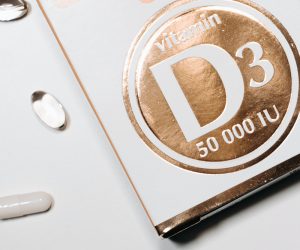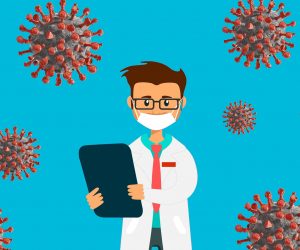
What to Eat & What Not to Eat for Optimal Mental and Brain Health According to a Nutritional Psychiatrist
Dr. Caroline Leaf – How you think affects how you eat, because the food you eat is determined by your specific choices and desires. But did you know that what you eat also affects how you think?
In this week’s blog and podcast, I talk to Harvard-trained nutritional psychiatrist Dr. Georgia Edeabout how certain diets can affect our mental wellbeing, what foods help the brain function best, and what foods to avoid if we want to heal and improve our mental and physical health.
Dr. Ede, in both her personal life and practice, has found that making certain lifestyle modifications can help treat major mental health issues such as ADHD, depression, anxiety and panic attacks. Through her research, she has found that nutrition can help heal and restore brain function, empowering people to take back control over their mental state and their lives, without the stigma and negative side-effects so common to pharmacological treatments for mental health.
Her nutrition-based approach focuses on finding the root causes of the mental health issue someone is experiencing in their life and helping them overcome it by:
1. Making sure the brain is getting all the nutrients it needs from real, whole foods like animal proteins and other healthy sources of fat.
2. Eliminating highly processed and refined junk foods that are damaging the brain, especially foods high in sugar and vegetable oils.
3. Boosting the brain’s metabolism, which fuels the brain and balances the production of hormones and neurotransmitters that affect how we think and feel.
Unfortunately, when it comes to brain and body health, many people believe that they need to eat a high-carbohydrate and low-fat diet, but this is simply not true. Most of this kind of dietary advice is based on epidemiological studies, which make populations fill out questionnaires on what they eat over time, and use this information to analyze health trends. Yet, when many of these results are tested in clinical trials, they fail to corroborate the original observations of the researchers—we cannot take the results of these studies at face-value, and should certainty not be basing our nutritional guidelines on them!
In fact, the brain loves good, healthy fats. This is a clean source of energy, which is great for our ability to think well and handle the vagaries of life. Diets high in sugar, however, especially the refined and processed sugars and vegetable oils that are widely available today, can cause all sorts of problems in the brain:
1. Refined and processed junk foods that are high in carbohydrates make it easy to become addicted to certain kinds of foods, especially from a young age. This, in turn, exacerbates the problems these kinds of food cause in the brain over time, and make them that much harder to give up!
2. These types of food can also lead to insulin resistance by constantly spiking our blood sugar levels, which, in turn, damages the brain and body’s ability to process carbohydrates and turn them into energy. Indeed, this process is like an internal roller coaster, throwing our hormones and neurotransmitters out of balance, damaging the protective blood-brain barrier and causing all sorts of health issues, such as inflammation, oxidative stress and decreased BDNF production (which is need for learning and building memories). These biological changes, in turn, can lead to dramatic mood swings, panic attacks, overeating, a lack of energy and so on, affecting the overall quality of our lives.
Yet many doctors and mental health professionals are not taught about the importance of diet when it comes to mental health. Their focus is often on the problem at hand—it is reactive by nature. Nutritional approaches to mental and physical health are, on the other hand, both reactive and preventative, and consider the whole person, mind and body.
If we learn how to feed the brain and body well, we can start to improve our mental health, no matter how old we are. As I discuss in my book Think and Eat Yourself Smart, when we learn to eat real, whole foods mindfully, we not only change our health, but also the way we think and deal with life.
This does not mean that we should all follow the exact same diet. As Dr. Ede notes, we are all different; there is no one way of eating that works for everyone. There are, however, several principles that we should all try to follow as we explore and find out what works for us:
1. Be careful of fad diets and fad foods.
There is no one superfood that will heal you and fix all your problems. When it comes to nutrition and mental health, it is important to think about your diet as a whole, eliminating junk foods and eating nutrient-dense foods that boost your brain’s metabolism and ability to function.
If you choose to follow a specific kind of diet, such as the keto diet or a plant-based diet, try avoiding processed products and packaged foods. Focus on eating real, whole foods that you “process” in your own kitchen. For example, if you are going plant-based, avoid the processed vegan burgers you find in a store or at a restaurant and make a vegetable burger at home using whole, natural ingredients like broccoli and sweet potatoes.
2. Don’t be afraid of fat!
Healthy fats from whole foods like meat, eggs, fish, avocados, nuts are natural, clean sources of brain fuel that do not cause sugar spikes and insulin resistance, so don’t be afraid of fat or the calories in these foods. In fact, many of the nutrients we need are fat-soluble; without fat, they are of no use to us!
3. Consult with your healthcare provider before you take supplements.
Don’t just go to the store and buy a whole bunch of supplements you think you need. Work on your diet, and consult with your healthcare practitioner if you feel like you are missing certain nutrients.
This is especially the case with plant-based diets, as you may not be getting all the nutrients you need to energize the brain and body. Historically, we have evolved to eat animal proteins, so if we decide to go plant-based we need to make sure we get the most from our foods and supplement where we can.
This article has been modified. To read the original article click here.
For more articles from Dr. Leaf click here.
For more articles from Dr. Leaf click here.






